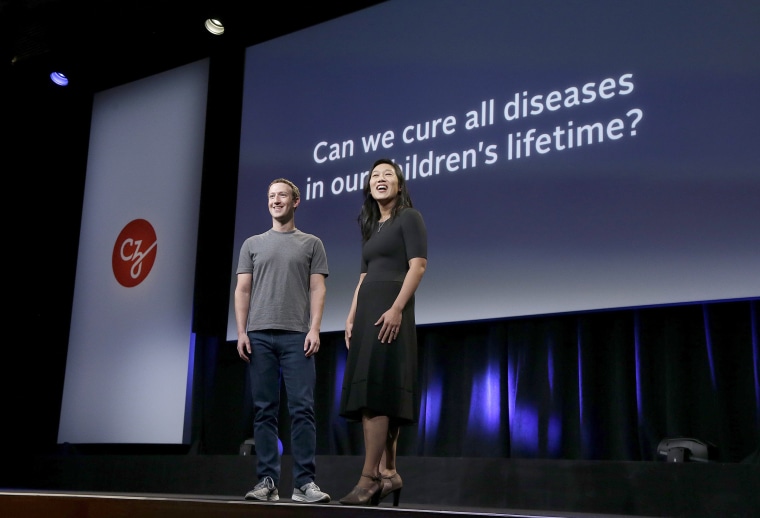Mark Zuckerberg and his wife, Dr. Priscilla Chan, have announced a $3 billion investment through their Chan Zuckerberg Initiative to help cure, prevent, and manage all disease.
Speaking at the first major gathering for the couple's philanthropic venture, Chan and Zuckerberg said they will make their investment over the next decade as part of their goal to give away 99 percent of their wealth.

While the Chan Zuckerberg Initiative and the team of scientists they've lined up acknowledge the task before them won't be easy, they're ready to tackle it head on. Here's a look at what you need to know.
Why They're Doing It
The couple announced its pledge to give away 99 percent of their wealth over the course of their lifetimes to coincide the birth with of their daughter, Max, around Thanksgiving 2015.
Chan is also a pediatrician and teared up on stage as she talked about having to deliver devastating diagnoses to some of her patients and their families.
"That doesn't mean no one will ever get sick... but it means our children and their children should get sick a lot less," she told the audience on Wednesday.
Uniting Scientists and Engineers
The Chan Zuckerberg Initiative will bring together scientists and engineers with the goal of having them build tools that can help advance their goal.
Some of the examples Zuckerberg gave were chips that could diagnose infection diseases or machine learning to analyze cancer genomes.
"We have to be patient. This is hard stuff, but it's important," Zuckerberg said.
Create Virtual Institutions
Growing the movement will be crucial, so the Initiative plans to create virtual institutions comprised of 10-15 groups around the world who regularly collaborate to solve a complex issue.
The idea is those groups of scientists and engineers would have a communication platform allowing them to better work together virtually, while also coming together for some in-person meetings.
The Biohub
The Chan Zuckerberg Biohub, a partnership with Stanford University; the University of California, San Francisco; and the University of California, Berkeley, will get an initial $600 million over the first 10 years.
Described as a "new, independent research center," it will bring together engineers, computer scientists, biologists, and chemists to innovate on how to solve some of the most complex problems.
Long Time Horizon
A goal as lofty as managing and curing all diseases is going to take time, a fact Zuckerberg and the scientists working on the initiative all acknowledge.